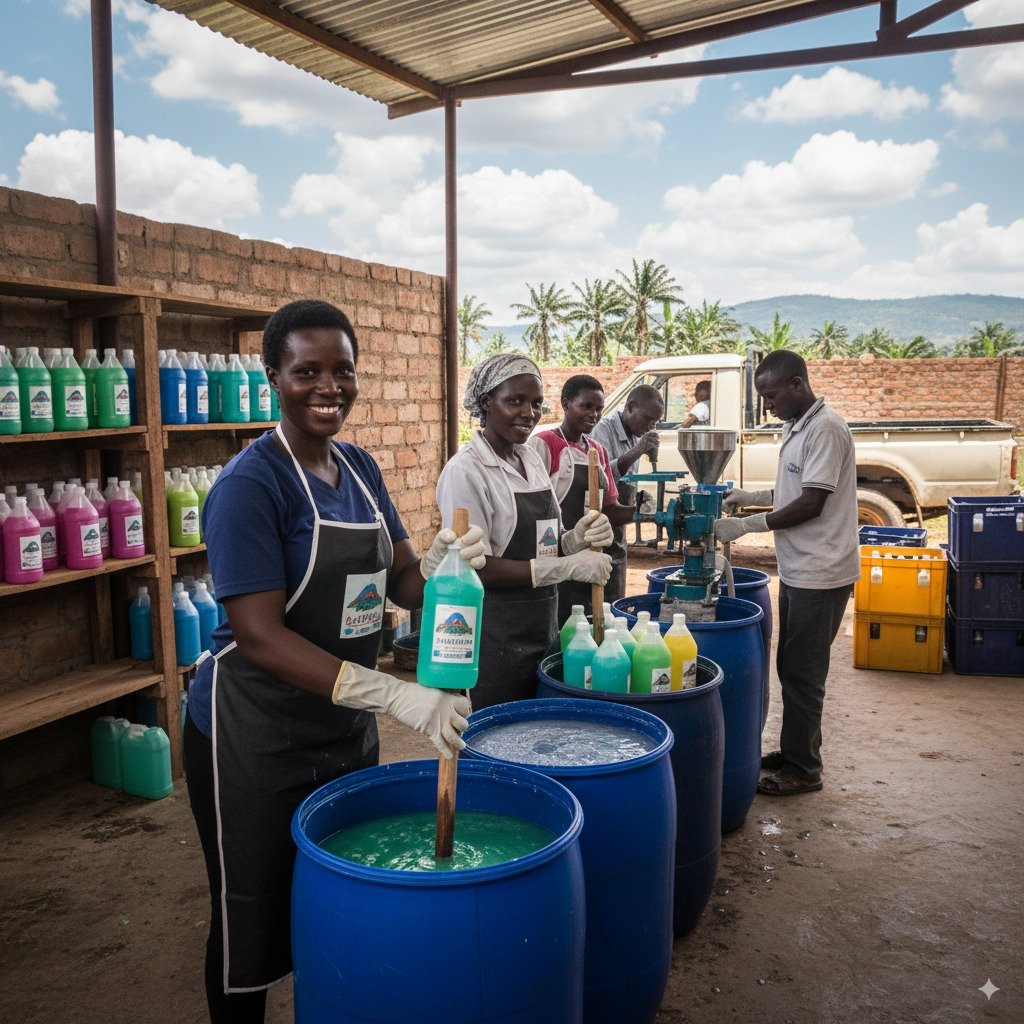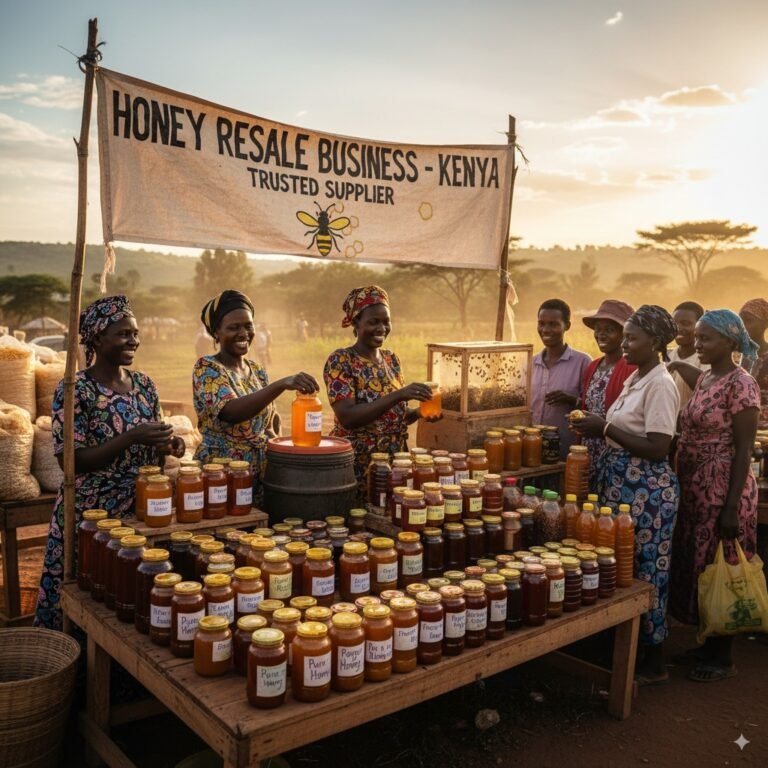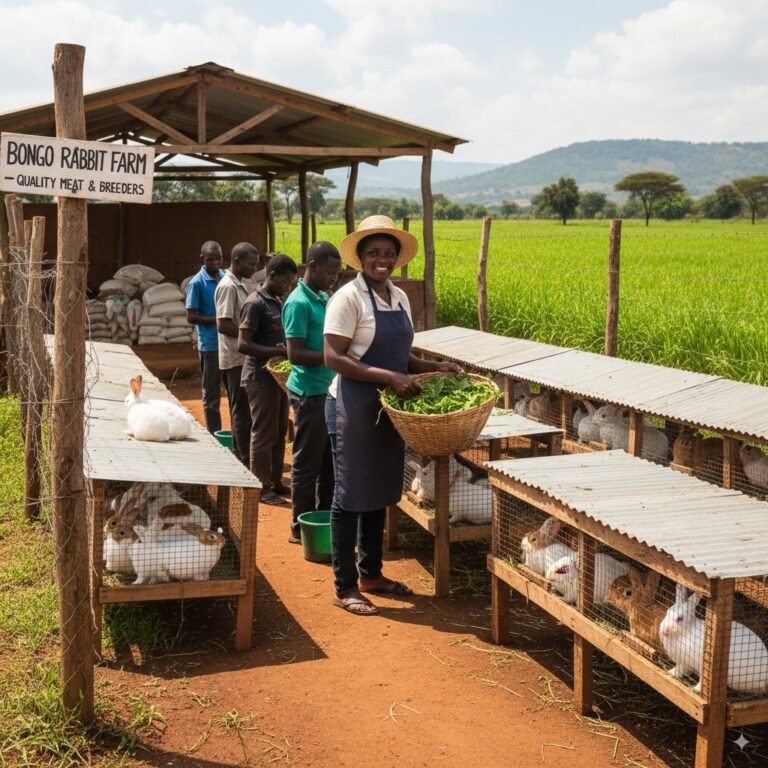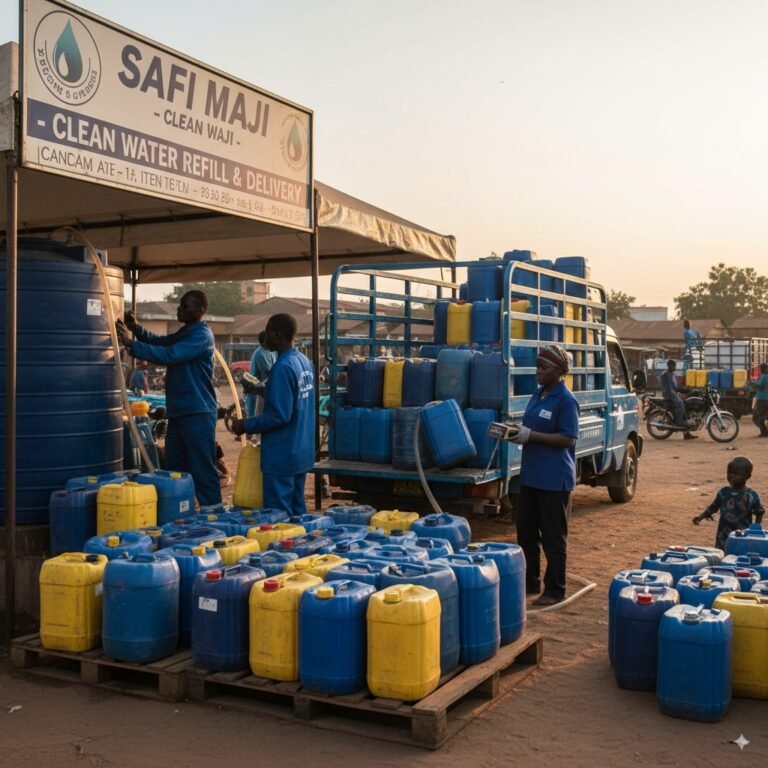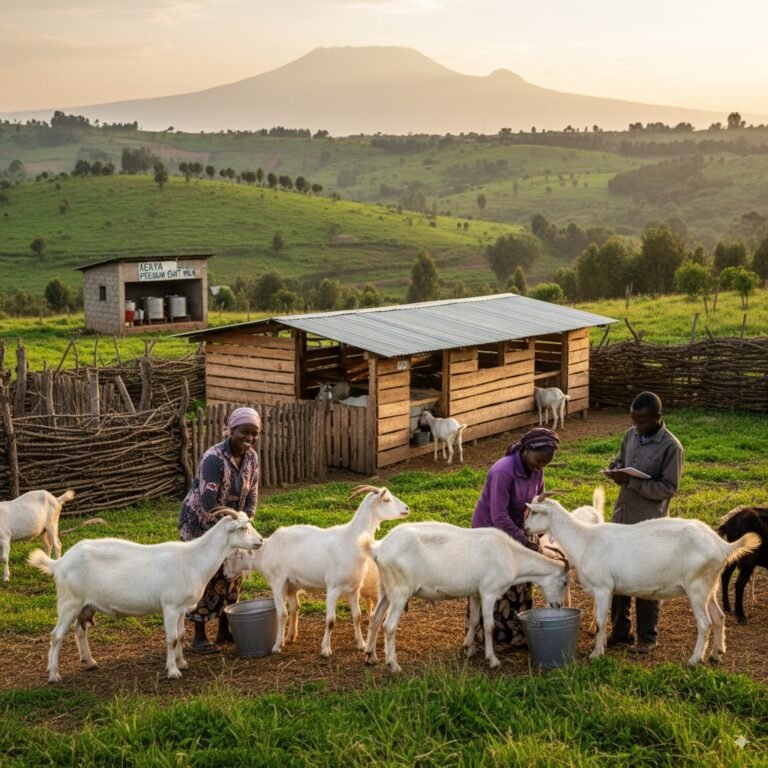How to Start a Liquid Soap Making Business in Kenya
Introduction
The liquid soap making business in Kenya is one of the most affordable and practical hustles for beginners. Soap is a daily necessity — used in households, restaurants, salons, schools, and offices. Unlike bar soap manufacturing, liquid soap production requires very little equipment and can be started at home with minimal training. With growing demand for affordable cleaning products, this is a hustle that can generate daily income with repeat customers.
Startup Costs 💰
This business is very budget-friendly.
- Capital Needed: KES 3,000 – 10,000
- Key Expenses:
- Raw materials (sulphonic acid, sodium hydroxide, color, perfume) — KES 2,000 – 5,000
- Mixing buckets and sticks — KES 500 – 1,000
- Measuring tools and gloves — KES 500 – 1,000
- Plastic containers/bottles — KES 1,000 – 2,000
- Branding labels (optional) — KES 500 – 1,000
💡 Tip: Buy ingredients in bulk to reduce costs and increase profit margins.
Why This Business Works ✅
- High Demand: Soap is needed daily in homes and businesses.
- Low Startup Capital: Start with less than KES 5,000.
- Repeat Customers: Clients buy again once they like your product.
- Flexible Market: Sell to households, schools, salons, and restaurants.
- Scalable: Expand into a full cleaning products line.
Step-by-Step Setup 🛠️
1. Learn the Formula
Attend a short soap-making training or get a reliable recipe. Correct mixing ensures safety and quality.
2. Buy Raw Materials
Get chemicals like sulphonic acid, sodium hydroxide, urea, perfume, and dye from chemical shops.
3. Mix Safely
- Wear gloves and a mask.
- Follow the correct measurements to avoid harmful reactions.
- Use clean buckets and stirrers.
4. Package the Soap
- Use plastic containers (500ml, 1L, 5L).
- Add labels with your brand name, contacts, and instructions.
5. Sell to the Market
- Households (neighbors, estates).
- Schools, salons, and restaurants.
- Supermarkets and kiosks (with branding).
Profit Breakdown 📊
Example:
- 20 liters of liquid soap costs ~KES 600 to produce.
- Sell at KES 100 per liter.
- Revenue = KES 2,000.
- Profit = KES 1,400 per batch.
👉 With consistent sales, monthly profits can reach KES 30,000 – 60,000.
Challenges & How to Overcome Them ⚠️
- Quality Issues: Poor mixing spoils the product.
- Solution: Follow proper formulas and measure carefully.
- Market Competition: Many people sell liquid soap.
- Solution: Differentiate with fragrance, branding, and delivery.
- Licensing for Larger Scale: County or KEBS requirements for mass production.
- Solution: Start small, expand when ready for formal registration.
- Storage of Chemicals: Some ingredients are hazardous.
- Solution: Store safely away from children and pets.
Tips to Grow 🚀
- Create unique fragrances (lemon, lavender, aloe vera).
- Sell in bulk to schools and institutions.
- Expand into detergents, disinfectants, and handwash.
- Partner with shops to stock your product.
- Brand your business with a name like “FreshClean Soap.”
Frequently Asked Questions (FAQ) ❓
Q: How much capital do I need to start liquid soap making in Kenya?
A: With KES 3,000 – 10,000, you can buy ingredients and packaging to begin.
Q: How profitable is liquid soap making?
A: A 20-liter batch can bring profits of KES 1,400. Monthly profits can reach KES 30,000 – 60,000.
Q: Do I need a license?
A: Small-scale sales don’t require one, but larger production may need county or KEBS certification.
Q: Where can I sell liquid soap?
A: Households, estates, schools, salons, restaurants, and kiosks.
Conclusion
The liquid soap making business in Kenya is a low-cost, high-demand hustle with reliable profits. With as little as KES 3,000 – 10,000, you can make and package soap from home and sell to neighbors, schools, and shops. By focusing on quality, branding, and repeat customers, this hustle can grow into a thriving cleaning products brand.
👉 Explore more hustler-friendly opportunities in the Business Ideas Hub — with over 50+ small businesses you can start today.

